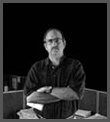“Kill all the lawyers.”
Misusers of the line from Shakespeare’s “Henry VI” see a put-down of the legal profession in it. Nah. It is a tribute. It comes from a rogue who wants chaos and lawlessness.
Listen closely and you’ll hear it in the “Liberate!” mobs. They’re saying, “Kill all the scientists.”
In so many words.
Dispense with science. That way we can get on with whatever shoot-’em-up business we desire.
Donald Trump every day wishes the scientists would just go away and leave the metrics to him and his melon.
As a citizen, I’m going to implore the lawyers suing to reveal the expurgated parts of the Mueller report to pursue the same regarding the deep-sixed Centers for Disease Control guidelines for reopening the country. Trump doesn’t want you to see them either.
Out, damn scientists.
Out, like Rick Bright – the top vaccine guy in the administration. He was fired for expressing concerns about hydroxychloroquine after Trump FOX-trotted it out with a “Try it” that was like a pitch for breakfast cereal.
Bright since has filed a whistle-blower’s complaint saying Team Trump “let politics and cronyism drive decisions over the best scientists.”
Well, of course. How else for anything stamped with Trump values?
Something other than cronyism is at play here. It is a continuation of an ideological war. You might call it a battle between self-certainty and science.
Science isn’t driven by the self. It is driven by inquiry. Science is slow and steady. It’s a slog. It’s not a chariot race
True, it’s frustrating, and it’s not good TV. So certain consumers of information turn to almost-experts who assure them that what one’s self says is assured.
Calling Dr. Drew. Calling Dr. Phil.
Science journalist Ed Yong, addressing the politics of the coronavirus in The Atlantic, writes that the very nature of science lends itself to attacks by those who don’t want it to rain on their political parades.
The virus, he writes, “not only corrupts our cells but exploits our cognitive biases.”
Because so much is yet to be known about the virus, certain segments of society, and certain political players, find gaping holes of doubt into which to plunge certitude, or at least seed further doubt about the evidence available.
Hence, writes Yong, “the devaluation of expertise.”
A scientist learns to be humble when searching for answers. Politics does not always award humility.
Yong warns of “society’s tendency to reward projected confidence over humility.”
It’s the kind of confidence now prematurely projecting a “back to normal” situation when no one who understands the pandemic says that is wise.
This is nothing new. We have a veritable industry of creating skepticism for anything that might impede business-as-usual.
We had it in Big Tobacco’s herculean effort to seed doubts about how smoking kills.
We continue to have it with Big Energy’s effort to counter the science behind climate change.
Of the virus, writes Dr. Lisa Gralinski of the University of North Carolina, when scientists, as they’re trained to do, “offer caveats instead of absolutes,” it “creates opportunities for people who present as skeptics.”
In other words, when Anthony Fauci makes sobering projections, they are based on evidence yet to come, not on certainty already poised on the tip of someone’s tongue.
Donald Trump convinced a lot of Americans that he alone could fix things. What a disastrous spiel. In him we have absolutely the wrong man in the wrong place at the wrong time.
As Yong writes, “In a pandemic, the strongest attractor of trust shouldn’t be confidence, but the recognition of one’s limits.”
That would mean proceeding with extreme caution until we know the enemy better. Unfortunately, we have a president who is certain he knows enough now and is tired of dealing with very dull science.
Longtime newspaperman John Young lives in Colorado. Email: jyoungcolumn@gmail.com.


